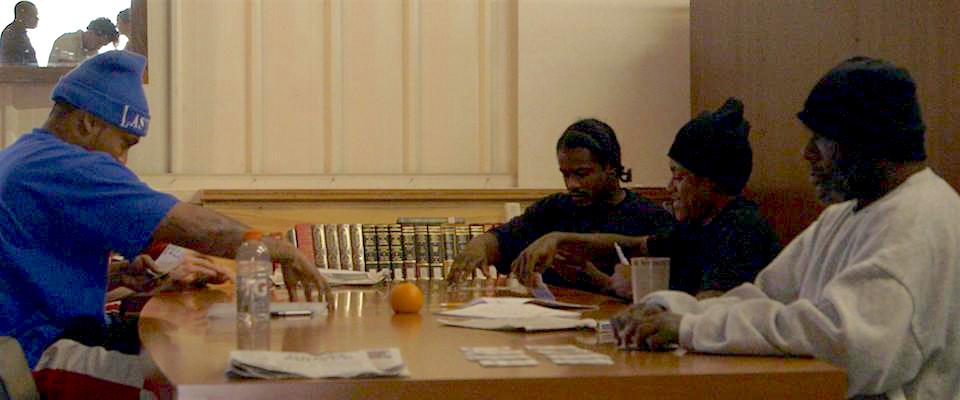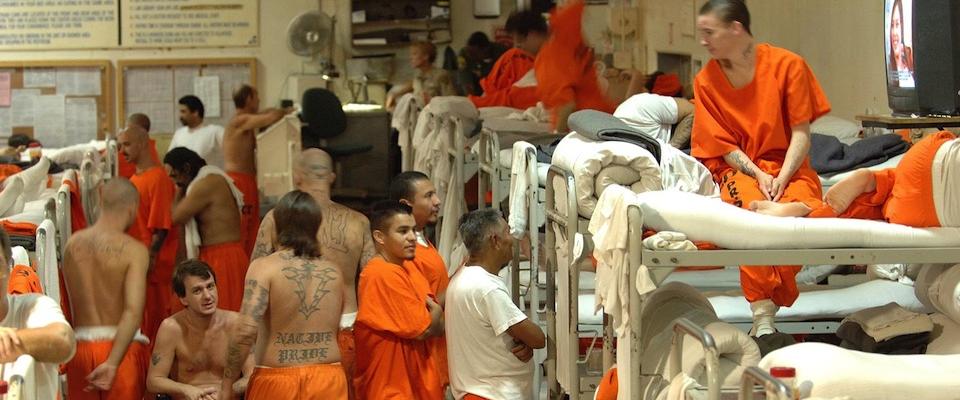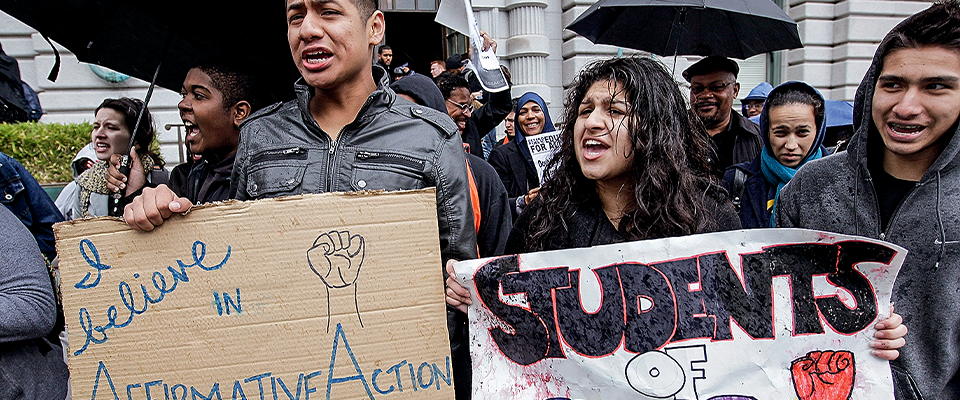Lock ’em up and throw away the key: For several generations California’s response to rising crime rates consisted of a variation on this theme, culminating with 1994’s severe Three Strikes law. But for the past two decades, violent crime in California has been falling, and by 2012, California voters took the unprecedented step of approving Prop. 36. For the first time in American history, voters passed an initiative that ran counter to the tough-on-crime movement. Serving as a key to long-locked prison doors, Prop. 36 enables hard-time convicts to petition for early release.
So what happens when men harboring little hope of ever seeing their families again suddenly get a new lease on life outside? Veteran criminal justice journalists Kelly Duane de la Vega and Katie Galloway were ready to capture the disorienting new reality with The Return, which kicks off the 29th season of PBS’s crown jewel documentary series POV on May 23. The 90-minute film provides intimate access to several men released from maximum security prisons as they reconnect with their families and struggle to make a new life for themselves. It also follows the activists and lawyers working to manage the radically altered legal landscape.
“What Prop. 36 meant was that over night thousands of people were eligible for resentencing,” says Galloway, who earned a Ph.D. in political science from UC Berkeley. “It’s the first time voters ever scaled back these harsh sentences and if it didn’t go well there were implications for further reform.”
The daughter of civil rights attorneys, Galloway met Duane de la Vega when they were both students at Berkeley High in the mid-1980s. As an undergrad at Cal, Galloway talked her way into an investigative reporting course at the UC Berkeley Graduate School of Journalism co-taught by legendary reporter Lowell Bergman and David Weir, a co-founder of the Center for Investigative Reporting. Galloway and Duane de la Vega both went on to teach documentary film techniques at Cal’s J-School, and both spent decades covering the seamy inner-workings of the criminal justice system. Their most recent foray together was co-directing POV’s 2011 season-opening Better This World, an award-winning documentary about FBI anti-terrorism strategies and how they affect political dissent and civil liberties.
With longtime friends in Stanford’s Three Strikes Project (now the Justice Advocacy Project), which spearheaded the Prop. 36 campaign, Duane de la Vega and Galloway were well positioned to start documenting the rapid pivot by the Stanford lawyers from advocating for a policy of sentence reduction to the nitty-gritty details of preparing prisoners for freedom. One thread of the film follows project attorneys Michael Romano and Susan Champion as they argue for sentence reductions before judges, comfort families, and try to help steer the men to available services upon their return to society.
Romano lays an incarceration crisis at the feet of the war on drugs and the lack of mental health services in America, both inside and outside prison. “Addiction is the problem and mental health is right there, smashed on top of it,” he says, noting that men now eligible for early release were often unable to avail themselves of addiction counseling behind bars because their long sentences made them ineligible. In a classic Catch-22, the film captures a courtroom scene where a DA argues against early release for a prisoner because he didn’t get counseling that wasn’t available to him.
“The second Prop. 36 passed, the Three Strikes Project went into high gear,” Duane de la Vega says. “They held a huge conference at Stanford and invited prosecutors all across the state. They were looking at thousands of people eligible for early release, and when they get out they’re looking for help to make the transition. Of course not all of them got it, but there were some that did, and I have to think the Three Strikes Project’s efforts and public awareness they raised made a big impact on recidivism.”
The Return illuminates the pain that ripples out from imprisonment, capturing the countless ways in which families also serve the sentence. One of the central characters is Kenneth Anderson, whom we first meet in court as Romano argues for his early release. Getting out of Soledad, he’s embraced by his ex-wife and soon meets their daughter, who has grown up into a striving young women haunted by her father’s absence. A large shambling man with a considerable degree of self-awareness, Anderson visibly wrestles with maintaining sobriety and managing the stresses of creating a new life for himself.
Films that rise or fall on access often sacrifice aesthetic vision for emotional immediacy, but De la Vega and Galloway manage to capture arresting images whether they’re in a courtroom, prison, half-way house or donut shop. They’re quick to credit Mario Furloni, an Oakland-based filmmaker, cinematographer and J-School grad from Brazil. Furloni has a producer credit on the film, as well as director of photography, and was an essential collaborator who earned the trust of the returned and their families.
“Mario is an amazing cinematographer,” Galloway says. “We really bring our shooters into the edit room, and study what works and what doesn’t. We wanted characters shot intimately and up close. What Mario got was breathtaking. He is so talented and has an incredible way with people.”
The POV documentary, made with funding from PBS’s Independent Television Service, is only part of The Return Project, which includes an extended education campaign geared toward ending the era of mass incarceration. Galloway and Duane de la Vega have created a series of short films about Prop. 36’s aftermath for the New York Times, Mother Jones, and other outlets, while also building an interactive multimedia archive and educational curricula. Unapologetic advocates for criminal justice reform, they see their work as part of a constellation of efforts to turn the tide against a system that has led to the United States imprisoning more citizens than any other democracy.
“We were raised during the escalation of imprisonment,” Galloway says. “In many ways when you tell criminal justice stories you provide a window into larger issues, systemic poverty and structural racism. You end up raising questions about the nature of justice and what it means to have a healthy society. We still have a system of mass incarceration where our sentences are five to ten times longer than any other Western democracy. Ultimately this is a human rights issue.”





















